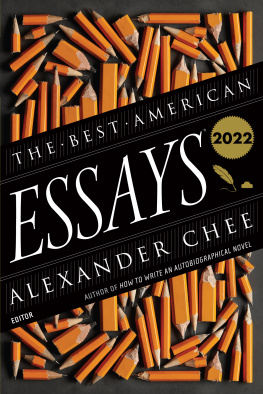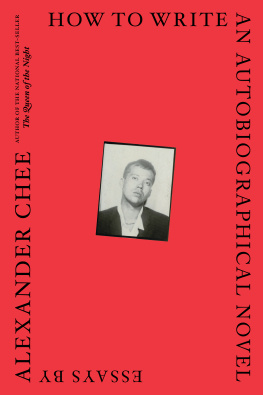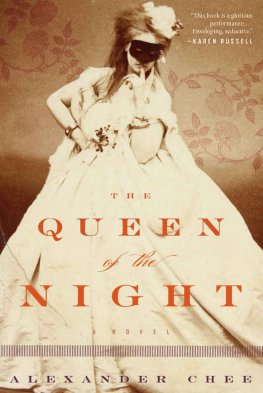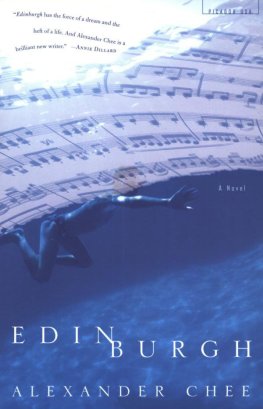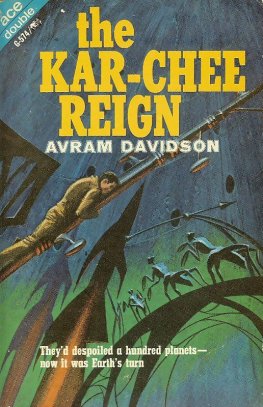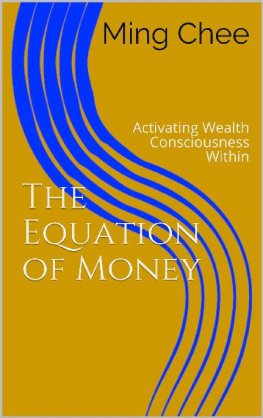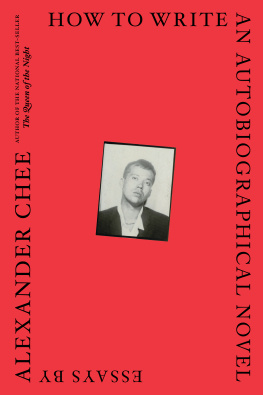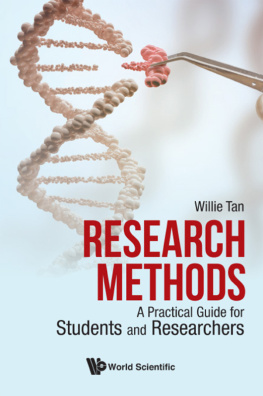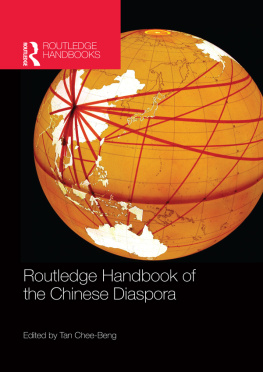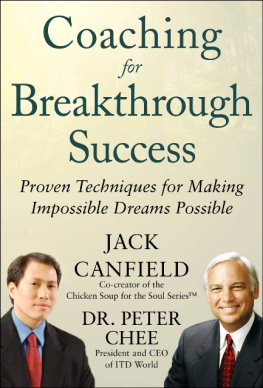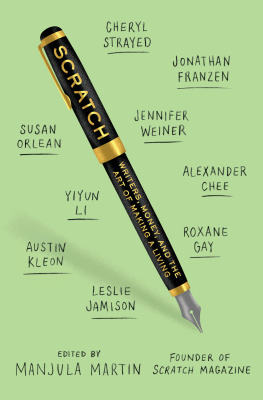Alexander Chee - The Best American Essays 2022
Here you can read online Alexander Chee - The Best American Essays 2022 full text of the book (entire story) in english for free. Download pdf and epub, get meaning, cover and reviews about this ebook. year: 2022, publisher: HarperCollins, genre: Detective and thriller. Description of the work, (preface) as well as reviews are available. Best literature library LitArk.com created for fans of good reading and offers a wide selection of genres:
Romance novel
Science fiction
Adventure
Detective
Science
History
Home and family
Prose
Art
Politics
Computer
Non-fiction
Religion
Business
Children
Humor
Choose a favorite category and find really read worthwhile books. Enjoy immersion in the world of imagination, feel the emotions of the characters or learn something new for yourself, make an fascinating discovery.
- Book:The Best American Essays 2022
- Author:
- Publisher:HarperCollins
- Genre:
- Year:2022
- Rating:4 / 5
- Favourites:Add to favourites
- Your mark:
- 80
- 1
- 2
- 3
- 4
- 5
The Best American Essays 2022: summary, description and annotation
We offer to read an annotation, description, summary or preface (depends on what the author of the book "The Best American Essays 2022" wrote himself). If you haven't found the necessary information about the book — write in the comments, we will try to find it.
A collection of the years best essays, selected by award-winning writer Alexander Chee.
Alexander Chee, an essayist of virtuosity and power (Washington Post), selects twenty essays out of thousands that represent the best examples of the form published the previous year.
The Best American Essays 2022 — read online for free the complete book (whole text) full work
Below is the text of the book, divided by pages. System saving the place of the last page read, allows you to conveniently read the book "The Best American Essays 2022" online for free, without having to search again every time where you left off. Put a bookmark, and you can go to the page where you finished reading at any time.
Font size:
Interval:
Bookmark:
WHEN I WROTE the first foreword for this series, back in 1986, I began with a quotation from E. B. White that Ive relied on many times over. I cited it warilyperhaps defensivelyas it clearly represented a serious obstacle to the idea of publishing an annual collection with a single objective: wemy editors and Ihoped the new series would showcase the essay as a serious literary genre. We thought the time had come. Yet, apparently, Whitesurely the best-known American essayist at the timedid not agree. In his foreword to Essays of E. B. White, he noted, rather sadly, in 1977: I am not fooled about the place of the essay in twentieth-century American lettersit stands a short distance down the line. The essayist, unlike the novelist, the poet, and the playwright, must be content in his self-imposed role of second-class citizen.
White died on October 1, 1985, at his saltwater farm in North Brooklin, Maine. At that time, I was in the midst of putting together the first volume of this series with our first guest editor, Elizabeth Hardwick. Stricken with rapidly accelerating dementia since the fall of 1984, White apparently published nothing in the months before he died, but had he, I doubt he would have been selected by Hardwick, who considered his work middlebrow. She leveled this judgment at lunch one afternoon when I brought up White. I had to agree with her assessment, but not entirely. I felt obliged to add that I thought he managed to write over a long career a handful of extraordinary essays.
White is a strange case. Buried deep inside his self-deprecating remark may be a chronic self-doubt, a recognition that it may not be the diminished stature of the essay in American letters but his own minor literary reputation that marked him as a second-class citizen. Its trueas Ive often notedthat the essay had fallen out of fashion, not only among publishers but in the important world of academia and criticism, where literary reputations are largely made. Though not an academic, Hardwick was just one of many highly respected critics at the time who didnt regard White as a significant literary figure. To many, he remained a New Yorker humorist of lesser talent than S. J. Perelman, James Thurber, or Dorothy Parker and a popular childrens book author. The work he thought of as his besthis essayswas not the subject of serious criticism or close reading. I think its fair to say that his essays are rarely read as literature.
With the exception of his three bestselling childrens books, White surprisingly garnered only a few literary awards throughout what many writers, especially those with an eye on numbers, would consider an enviable career. (The childrens books alone have sold millions of copies.) In his 1977 foreword he also noted that a writer who has his sights trained on the Nobel Prize or other earthly triumphs had best write a novel, a poem, or a play.... Essays wouldnt get you there. Perhaps that comment inspired the Pulitzer jury to make up for its previous neglect and honor him a year later with a special citation... for his letters, essays, and the full body of his work. Was his lack of critical acclaim due to the diminished status of the essay in general or was it a direct result of work that didnt strike many as worthy of literary fame? In her quick indictment, Hardwick, a fine essayist herself, was responding to Whites talent and not his preferred genre.
Yet White had achieved some level of literary fame in one small corner of academia: first-year writing programs, often known then as Freshman English. When I began teaching such courses in the mid-1960s, I didnt think it possible to find a textbook or any of the numerous anthologies we used at the time to introduce students to prose models that did not include an essay of E. B. Whites. (It didnt hurt that White was also well known as the coauthor, with William Strunk Jr., of the perennially bestselling The Elements of Style, a little book often recommended to writing students at all levels and that still sells well.) In the college publishing industry, Whites essays were known as chestnuts, selections that anyone assembling an anthology must include. As far as I can tell, old chestnuts was British slang for tiresomely repeated jokes, and the word may have been popularized by vaudevillians. Im not sure editors today are familiar with the vintage metaphor, but anyone in charge of publishing an anthology at the time knew which essays they could not avoid.
The sine qua non of those chestnuts was E. B. Whites short personal essay Once More to the Lake. Open any first-year writing anthology and there it was. In the 1950s, an entire family probably could have lived happily on the reprint fees from that essay alone. Yet, though it may have become an inside-publishing joke, this chestnut, in my opinion, has deserved its long shelf life. An essay about identity, it has little to do with how that term has been refashioned in our time. On its surface, it seems to reinforce the middlebrow values that have long compromised Whites reputation. When critics judge some works (or a body of work, like Whites) middlebrow, they usually mean that they embody a cluster of what gradually came to be considered ersatz valuesderivative, sentimental, complacent, pretentious, inauthentic, conventional. Today, that essayif anyone still teaches itis probably discussed as a central document of white privilege (pun unavoidable).
I suppose if there were to be an illustrated edition of Once More to the Lake, the most likely artist would be Norman Rockwell: a father suddenly stricken with nostalgia decides to take his five-year-old son on a fishing trip to the same Maine lake where his father had taken him fishing nearly forty years earlier. Who better than Rockwell to convey the tranquil satisfactions of a middle-class summer vacation? But the way I read the essay, I think the more appropriate illustrator would be Edvard Munch. The essay is anything but serene.
White constructs Once More around a central illusion that envelops him as soon as he and his son arrive at the lake in the summer of 1941. Time has stopped; it has dissolved; nothing at this unique, this holy spot has changed. There had been no years, he repeats several times, repetition (once more) being one way to thwart the passage of narrative time. Yet, oddly enough, White doesnt seem determined to reinforce this key illusion. Instead, he frequently points out small details that challenge it: for one thing, the lake is far noisier than it was in 1904, thanks to outboard motors having replaced the sleepy-sounding old one- and two-cylinder inboard engines he fondly recalls. This was the note that jarred, the one thing that would sometimes break the illusion and set the years moving.
But noise is just one break in the illusion. The roads are now tarred; the waitresses were still fifteen but now their hair had been washed, as they had been to the movies and seen the pretty girls with the clean hair; arriving at camp now lacked the excitement it once had when the farmers wagons waiting at the train station dropped you off after a bumpy ten miles (now you simply drove in and parked); the road leading up to the farmhouse for dinner once had three tracksone for horsesbut now has only two: For a moment I missed the middle alternative. Things look the same... except. Inside the camps general store, all was just as it had been, except there was more Coca-Cola and not so much Moxie and root beer and birch beer and sarsaparilla.
These small but noticeable changes, all brought about by twentieth-century progresslike the earsplitting outboard motorshave the effect of disrupting the illusion of stopped time, the fantasy that the now forty-something White is enjoying the very same magical lake he loved as a small boy. As he insists on the odd feeling that nothing has changed and minimizes the changes he fastidiously observes, we slowly realize that were not meant to ignore them as he seems to do. Earthly time doesnt ever stand still; it moves forward, or, in terms of human life, it oscillates between forward and backward as we live both in the moment and in our memories. White subtly reminds us of these back-and-forth oscillations when he recalls how as a boy he learned to master his old one-cylinder inboard. By getting close to it spiritually, he couldinstead of shutting off the engine and coasting in to landreverse the engine by cutting the switch and putting it on again exactly on the final dying revolution of the flywheel, so that it would kick back against compression and begin reversing. A good metaphor for how the essay itself has been advancing. And an example of writing that adheres to what Henry James called the strange irregular rhythm of life.
Font size:
Interval:
Bookmark:
Similar books «The Best American Essays 2022»
Look at similar books to The Best American Essays 2022. We have selected literature similar in name and meaning in the hope of providing readers with more options to find new, interesting, not yet read works.
Discussion, reviews of the book The Best American Essays 2022 and just readers' own opinions. Leave your comments, write what you think about the work, its meaning or the main characters. Specify what exactly you liked and what you didn't like, and why you think so.

